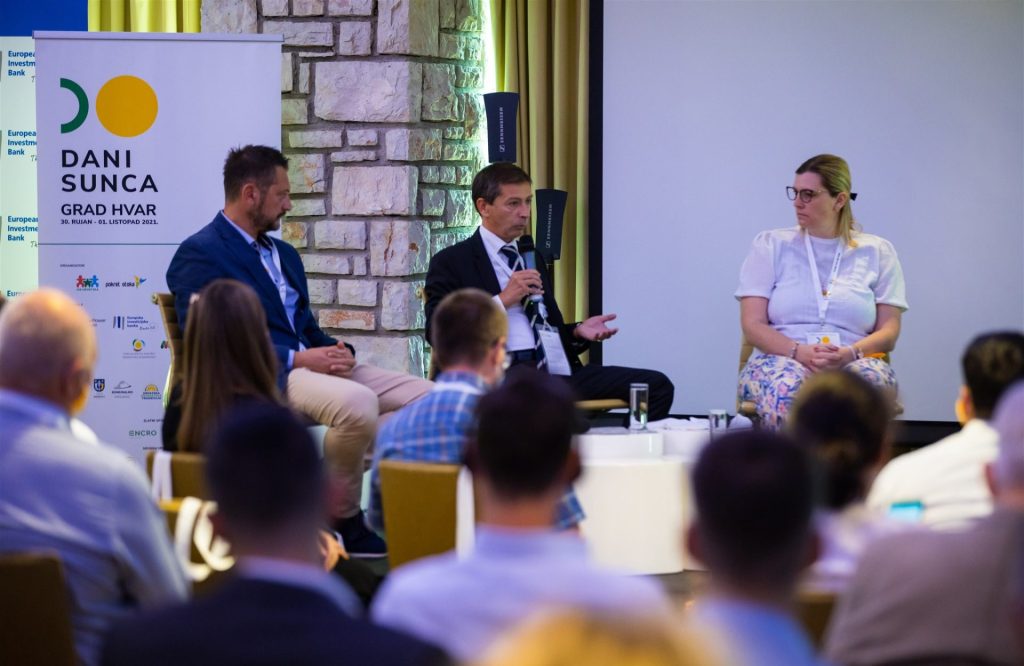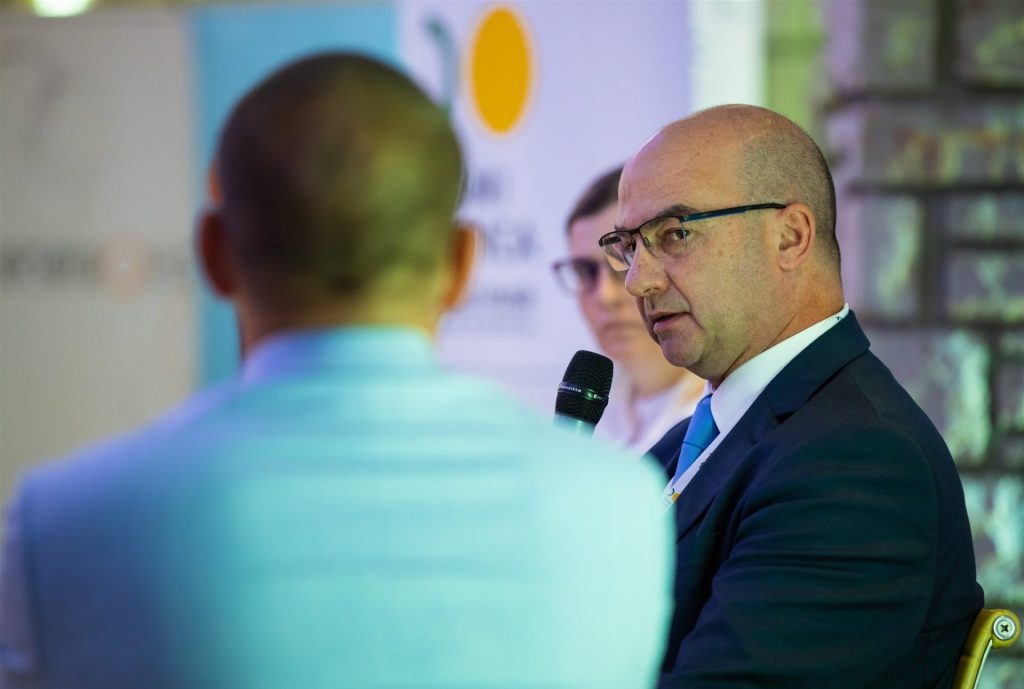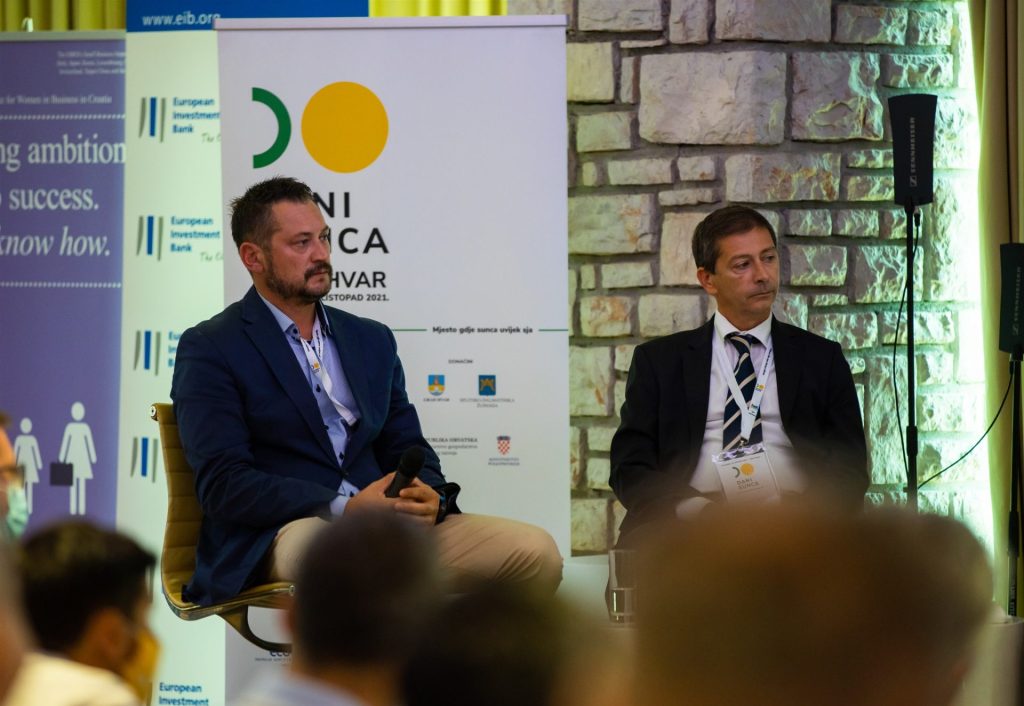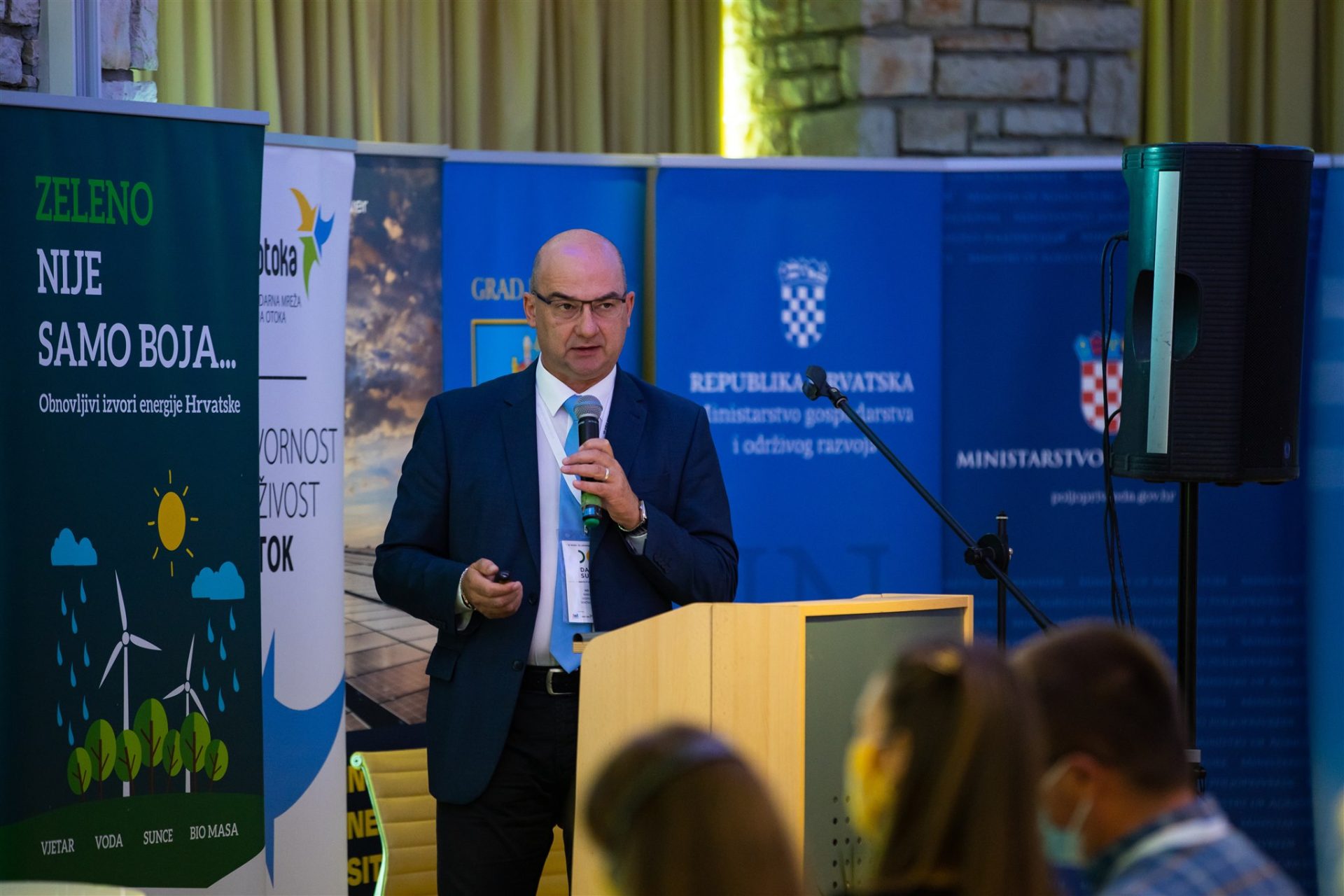Ivo Milatić, state secretary in the Ministry of the Economy and Sustainable Development presented, at the ‘Sunny Days’ Conference, held on 30 September and 1 October in Hvar, the novelties contained in the new legal framework in the green transition.
The new Electricity Market Act transmits all the determinants of the Directive (EU) 2012/044 of the European Parliament and Council of 5 July 2019 on the joint rules pertaining to the internal electric power market and amended Directive 2012/27/EU (OG L 158, 14.6 2019), and upon its coming into force by the middle of this month the adoption of bylaws will follow. The second important law in the implementation of the green transition is the Law on Renewable Energy Sources and Highly Efficient Co-generation (LRESHEC) which passed the first consideration and will be brought in line with Directive (EU) 2018/2001 of the European Parliament and Council of 11 December 2018 on the promotion of the use of renewable energy sources. The proposal of the Law should be adopted by the Government of the Republic of Croatia by the end of October 2021 and is expected to come into force by the end of November 2021.




Bases for the adoption of the Electricity Market Act
- The model for the functional electric power market is the key element enabling the increased use of renewable energy
- Technological progress in the management of the electric power grid, as well as the production of renewable electric power, opens up new possibilities to the buyers
- The freedoms guaranteed to EU citizens by the Treaty on the Functioning of the European Union (freedom of movement, freedom of setting up business entities and rendering of services) are achievable only on a completely open electric power market.
- Free access to electricity markets is provided for all groups of buyers (industrial and commercial as well as from the category of households) in order for all to benefit from market competition in the EU.
- Improvement of the regulatory framework that will contribute to the resolution of current problems on the electric power market.
Novelties of the Electricity Market Act
- Common rules will be established for the production, transmission, distribution and storage of energy, including the supply of electric energy
- Provisions on the protection of consumers with a view to creating integrated, competitive, flexible and transparent electric power markets applied in the entire EU and directed at all end users
- Establishment of principles for the formation of acceptable and transparent prices and costs of electric power for end-users and key rules for the organization and functioning of the electric energy sector
- Provision of a high level of supply security and unhindered transition to a sustainable energy system with a low carbon emission level
- Introduction of new institutes, such as active buyer and citizen energy communities geared at enabling all end buyers to directly participate in the production, consumption or sharing of electric energy
- Accordingly, the introduction of new energy activities such as aggregation, energy storage, organization of citizen energy communities and operators of closed distribution systems
- Establishment of a public invitation procedure for the issuance of energy licences for new production capacities
- Provision of free access to at least one tool for comparing suppliers’ offers for buyers from the household category and buyers from the entrepreneurship category with anticipated annual consumption lower than 100.000 kWh (including offers for contracts with the dynamic establishment of electric energy prices in the freely negotiated part).
- The end consumer can independently or through aggregation participate on an equitable basis in all the electric power markets
- The introduction of an advanced measuring system empowers the end buyers by enabling them to receive precise back information on consumption or production of energy in almost real-time, better management of energy consumption as well as the consequent lowering of their bills for electric power consumption
- Energy storage as a plant in which electric energy is stored through transformation into some other form of energy, implying reversible electric plants, pump power plants, electrical boilers with tanks, heat pumps, battery electrolysis tanks with hydrogen storage tanks and other installations for storing electric energy in some form that will later on be channelled into the transmission or distributions grids
- Establishment of rules on the autonomy of HERA as well as of ways for cooperating with other member states, regulatory bodies and operators of the transmission system with a view to creating a fully interconnected internal electric power market
- Provision of common basic principles in regard to the setting of tariffs and allocation of trans-zone capacities in the entire European Union
- Promotion of energy integration from renewable sources and free-market competition
- The introduction of electric mobility as an important element of the energy transition
- The introduction of an advanced measuring system empowering end buyers by enabling them to receive precise back information on consumption or production of energy in almost real-time, better management of energy consumption as well as the consequent lowering of their bills for electric power consumption
- Establishment of public invitation procedures for the issuance of energy licences for new production capacities
Energy licences for production facilities
- Production plants or electric power storage facilities the construction of which is intended have to meet the criteria established in the public bid process for the issuing of energy licences by expressing interest in written form to the Ministry in order to develop a production facility in a specific location
- The Ministry decides on the implementation of the public bid for the issuance of the energy licences
- The energy licence is issued on the basis of the decision on the selection of the most favourable bid
- The public invitation for the issuance of the energy licence is not implemented if the investor has resolved property issues on the land on which he plans to develop the production facility for geothermal plants and hydroelectric power plants exceeding 10MW
- The charge for the allocation of the energy licence is paid to HROTE d.o.o., and conceded to the project holder as a guarantee of the validity of the bid in the course of the participation of production facilities in the invitation for the allocation of the market premium
Law on Renewable Energy Sources and Highly Efficient Co-generation
- Implementation of an incentive programme in a form that does not impede the functioning of the electric power market
- The bidding process for the allocation of incentives is open to all-electric energy producers from renewable sources on a non-discriminatory basis
- With a view to avoiding disruptions that result in the excessive import of resources from third countries, the life cycle approach is promoted as well as the principle of equal value consideration of electric power produced and imported from third countries
The presentation of the legal regulatory framework was followed by a panel discussion ‘The State and Future of Photo-voltage Power Plants in Croatia with the participation of Ivo Milatić, state secretary at the Ministry of the Economy and Sustainable Development, Lana Bačura, head of the service in the Department for agricultural incentives and rural development at the Ministry of Agriculture, Ozren Fućak, project head and a specialist from HROTE, and dr. sc. Tomislav Plavšić, chairman of the Board at HOPS.
Plavšić pointed out that HOPS was not the creator of the energy policy but that it is one of the key factors in its implementation. In other words, for more than 10 years HOPS has been successfully connecting all the implemented RES projects, primarily wind farms and is currently facing the challenge of connecting considerable quantities of produced capacities for which an interest has been expressed, including the growing interest for connecting solar plants to the transmission grid. Primarily taking into account the security and stability of the system of electric power plants, and thereby of the security of consumer supply, HOPS is conducting an analysis of the possibilities of connecting RES production capacities to the transmission grid, taking into account the available infrastructure possibilities for power transmission, available mechanisms for balancing the system and tools for predicting RES production. In line with technological development as well as the development of the electric power market, with the passing of time, the possibilities of new RES production capacities have increased. In this respect, a significant contribution was given by the national and EU legislative framework which regulates the RES field, wherein the question of responsibility for balancing the system is of particular importance for HOPS.










